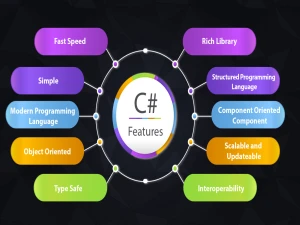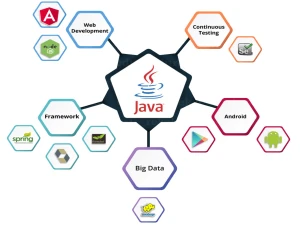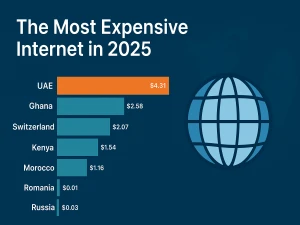What’s the Difference Between Java and JavaScript? A Complete Comparison
A
lthough the names Java and JavaScript are very similar, these two programming languages are actually very different. Many beginners think that these two languages are related or that one is an extension of the other, but the reality is something else. In this article, we are going to examine the basic differences between these two languages in terms of structure, usage, performance, and runtime environment.
1. History and Origin
Java:
-
Developed by Sun Microsystems (later acquired by Oracle) in 1995.
-
Purpose: To create an object-oriented, portable, and platform-independent programming language.
JavaScript:
-
Created by Brendan Eich at Netscape in 1995.
-
Purpose: To develop a scripting language for interacting with web pages in browsers.
✅ Fun Fact: The similarity in names was mainly for marketing purposes, not technical ones.
2. Type of Language
Java:
-
A compiled, object-oriented (OOP) programming language.
-
The code is first compiled into bytecode and then executed by the Java Virtual Machine (JVM).
JavaScript:
-
A scripting, interpreted, and dynamic language.
-
It is directly interpreted and executed in the browser (or in environments like Node.js).
3. Runtime Environment
Java:
-
Used for desktop applications, mobile apps (Android), and server-side systems.
-
Requires the installation of Java Runtime Environment (JRE).
JavaScript:
-
Runs in web browsers.
-
Widely used for designing and adding interactivity to web pages.
-
Also used on the server-side with platforms like Node.js.
4. Syntax and Structure
While at first glance there might be some similarities in syntax (like using curly braces {} and if/else statements), there are key differences:
Java:
-
Strongly typed language.
-
Requires explicit declaration of variable types (e.g.,
int,String). -
Needs to be compiled before execution.
JavaScript:
-
Loosely typed language.
-
Variables are declared using
var,let, orconstand have dynamic types. -
Variables can change type at runtime.
5. Use Cases
| Area | Java | JavaScript |
|---|---|---|
| Mobile Apps | Yes (Android) | Yes (with frameworks like React Native) |
| Web Development | Mainly server-side (Backend) | Mainly client-side (Frontend) |
| Game Development | With engines like LibGDX or jMonkey | For light, web-based games |
| Artificial Intelligence | Yes, but not as widely as Python | To a limited extent |
6. Libraries and Frameworks
Java:
-
Popular frameworks: Spring, Hibernate, JavaFX, Android SDK
JavaScript:
-
Popular libraries & frameworks: React, Angular, Vue.js, Node.js, Express
Conclusion
| Feature | Java | JavaScript |
|---|---|---|
| Language Type | Compiled, Object-Oriented | Scripting, Interpreted, Dynamic |
| Runtime Environment | JVM, Android, Server | Browser, Node.js |
| Primary Use | Enterprise apps, Android apps | Web interactivity, frontend development |
| Syntax | Strict with types | More flexible and simpler |
Ultimately, the choice between Java and JavaScript depends on your project goals. If you're building powerful enterprise applications or Android apps, Java is a great option. But if your focus is on web development and user interfaces, JavaScript is the way to go.









Comments